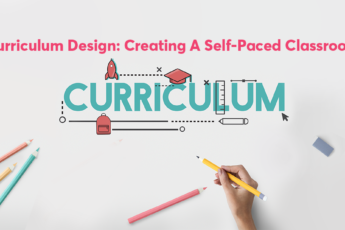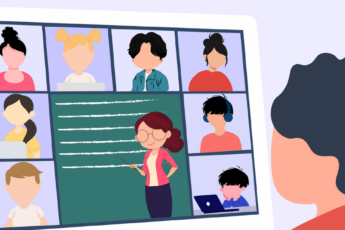Why We Need to Realign Mindsets Across All Levels of the ECCE Landscape in India

The National Education Policy (NEP) 2020 aims to address India’s education imperatives, and sets a strong foundation for Early Childhood Care and Education (ECCE) for future generations to thrive. The holistic development envisioned by NEP 2020 must be supported by a strong need to update conventional means of learning and adopting innovative forms, for better results. The objective of transforming existing learning culture depends on changing a mindset stemming from decades of following a traditional approach to education. However, teaching methodologies that worked in the past might not be completely applicable in the future. We need early learning providers—educators, parents, and even leaders—to change their mindset, so that children are enabled to answer the question of “how to think”, rather than “what to think”.
To help navigate these uncharted waters, implement new teaching-learning methodologies into each classroom, and see greater holistic development, we will need to update traditional methods and merge the old with the new.
Square Panda India Recommends:
- Explain The Neuroscience Behind Early Learning: A young learner is not just experiencing their first brush with schooling and education; they are also developing around 85% of their brain in the early childhood period, until the age of eight. This learning is cemented by experiences from their homes and their surroundings. ECCE educators and parents need to comprehend the neuroscience behind the early learning process and the effort it takes to develop each young learner’s brain holistically, for them to develop an appropriate sense of gravitas towards this responsibility.
- Bring Learning Into The Home: The role of parents in early childhood education is vital to improving student outcomes and the overall learning experience. Parental awareness and engagement in early schooling impacts every step of the ECCE process, and complements the measures taken by ECCE stakeholders, including educators and policymakers. Parental involvement in the minutiae of their child’s life, which includes their early education, serves to improve their learning outcomes to a greater degree. To enhance this provision and to increase the success of early childhood programs, webinars and workshops can be conducted with expert speakers enhancing awareness of new age methods of teaching, developmental milestones, appropriate learning outcomes, and more.
- Conduct Training And Empowerment Programs: The knowledge about the impact of early education must be followed by information on new-age teaching methodologies that best impact early years’ instruction. Explaining various styles of teaching is vastly different from experiencing it firsthand. A practical application of 21st century methodologies, including experiential and play-based methods, can have a drastic effect on the minds of educators and parents alike, allowing them to relate to these techniques and put it into practice in the classroom and at home. Additionally, this training sees a stronger impact if people at all levels of the ECCE sector—leaders and policymakers, educators, and parents—are involved in these training sessions. While teachers and parents play a crucial role in ECCE, coaching leaders help turn early learning into a more fruitful experience. The system is stronger when every stakeholder is aligned with each step of the program, and is advised on the knowledge and the workings of each phase of training.
- Reflect The Changes In The Curriculum Itself: Simple activities like play, activities, and even everyday experiences form a learning base for children, adding to their knowledge in the early years. To truly see mindset changes develop across levels in the ECCE landscape, each of these new age methodologies, the change in teaching patterns, has to be reflected in the curriculum, and the NEP 2020 highlights this very fact. This adds an air of gravitas to the methods previously labelled as ‘hobbies’ or ‘pastimes’. For added knowledge, learning outcomes expected from each activity can also be highlighted across the curriculum, which can then be conveyed to homes, again linking the early learning ecosystem together.
- Adopt Partnerships With Private Entities: An August 2020 study by UNESCO states that out of the 320 million Indian children affected by school closures during the pandemic, only 37.6 million across 16 states are continuing their education. As the pandemic has taught us, adapting to changing needs is crucial to creating a learning revolution capable of transforming our ECCE sector. Increased digital penetration, and subsequently teacher training and parental awareness programs, can be effectively wrought by robust public private partnerships. This PPP model can link each part of the ECCE landscape together, ushering an era of equality and inclusivity alongside changing mindsets.
NEP 2020 will remain a visionary document if we cannot nail its implementation. The success of this hinges majorly on our success in eliminating pre-existing misconceptions and bringing about a definitive change in the minds of each ECCE stakeholder, from the outset.
Square Panda India’s educator empowerment programs work towards the goal of eliminating mindset barriers & changing perceptions of parents & school administrations towards interactive early learning techniques & methodologies. Our team of ECCE experts train Anganwadi workers and early years’ educators in the neuroscience behind early learning, new age teaching methods, effective classroom management techniques, basic digital literacy and knowledge of Information and Communication Technologies (ICT), and English language skills.
Learn more about our programs here.




Leave a Comment